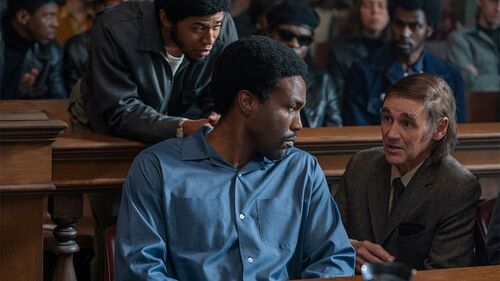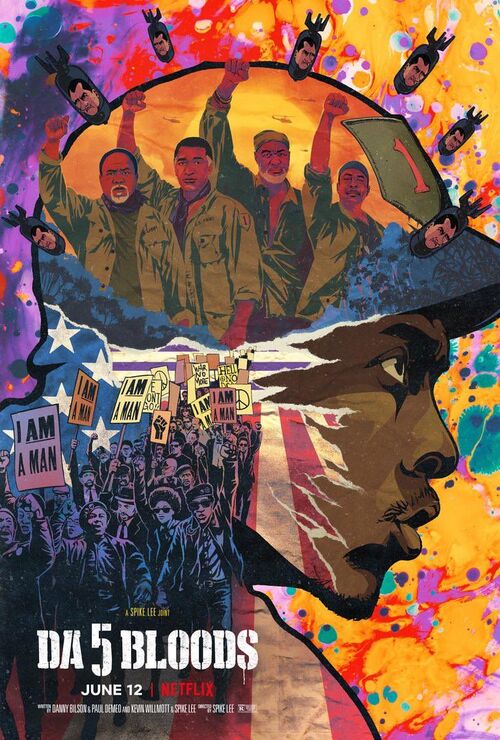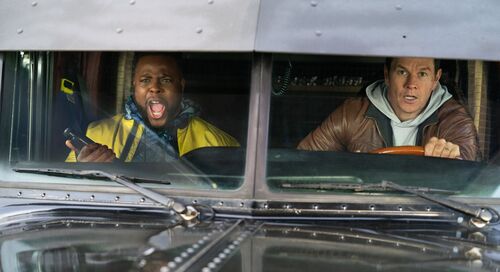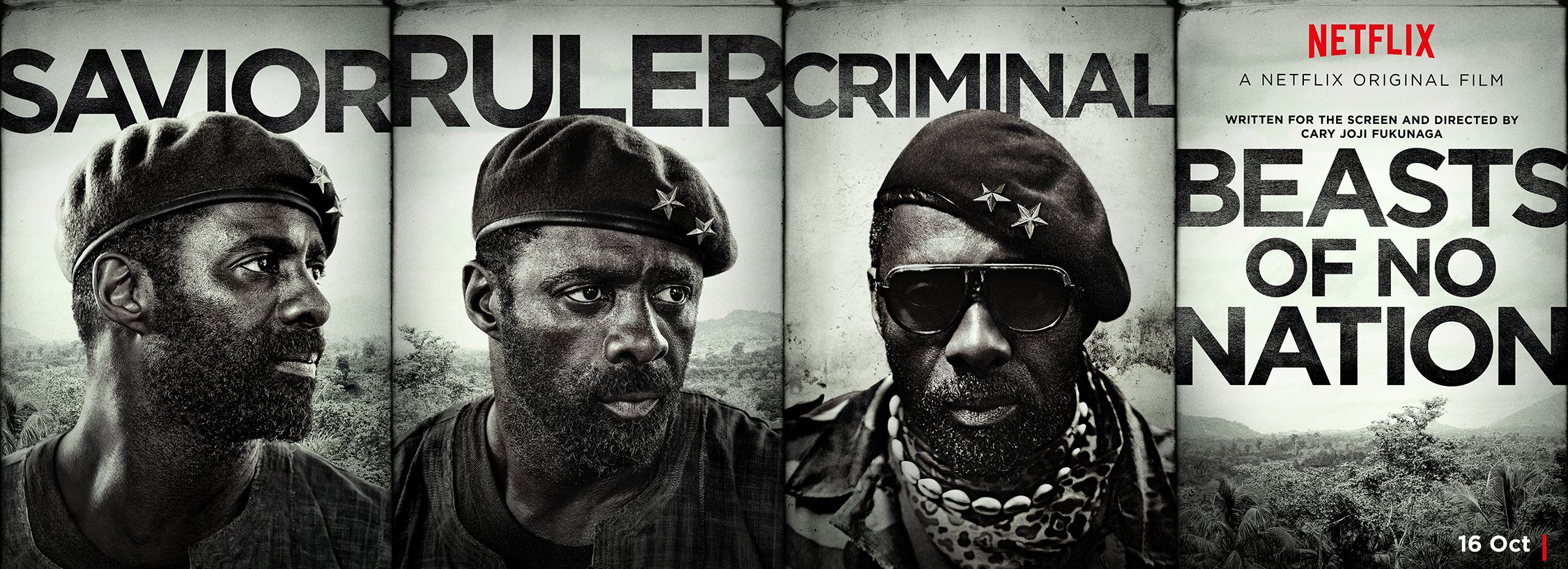
Beasts of No Nation
 A lot of the build-up enveloping Cary Fukinaga’s Beasts of No Nation focused on the first foray into feature film production by the video streaming company Netflix. This move has garnered some bad blood from major studios and cinema multiplexes, for obvious reasons. Fukunaga’s film went on to screen at the Venice and Toronto film festivals and was met with an overwhelming number of rave reviews, which I find a tad baffling going by the end product. Fukunaga’s verve and craft remain undeniable as he showcases his prowess behind the camera working on themes of eroded innocence, but this film is weighed down by (a sometimes) unsettling inconsistency permeating through his script to the performances, tone and world building.
A lot of the build-up enveloping Cary Fukinaga’s Beasts of No Nation focused on the first foray into feature film production by the video streaming company Netflix. This move has garnered some bad blood from major studios and cinema multiplexes, for obvious reasons. Fukunaga’s film went on to screen at the Venice and Toronto film festivals and was met with an overwhelming number of rave reviews, which I find a tad baffling going by the end product. Fukunaga’s verve and craft remain undeniable as he showcases his prowess behind the camera working on themes of eroded innocence, but this film is weighed down by (a sometimes) unsettling inconsistency permeating through his script to the performances, tone and world building.
Beasts of No Nation is adapted by Fukunaga from the 2002 novel of the same name and it is supposed to be set in an unnamed/fictional West African country, but it was filmed here in Ghana, giving it a quite familiar feel. It draws on aspects of our culture, vernacular, actors and even pop music – it indeed opens with bars from Sarkodie’s Illuminati rolling off the tongue of our young protagonist, Agu. Agu is played by first time actor Abraham Attah and he embodies the buoyancy, imagination and mischief of childhood in the early proceedings amidst awareness of civil conflict in his country. The reasons for this conflict are unclear, but we reside in Agu’s perspective and he probably doesn’t understand it either. We however feel the effects of this strife as the conflict creeps ever closer to Agu’s village, and his family is ripped apart first by his Mother and baby sister having to flee the town to safety followed by an eruption of Militia led violence that leaves the rest of his family dead. He manages to flee into a labyrinth of evergreen bushes, but we know nothing good awaits him. Quite the compelling opening.
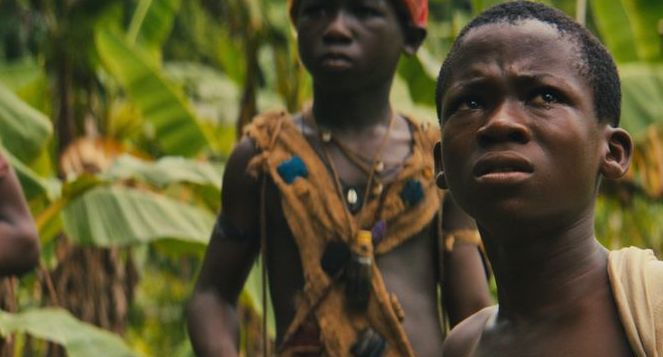
My mind was drawn to the ridiculous rhetoric of paranoia and dread being shopped around following the 2012 elections. There was a ton of nonsense at play and Ghana was never going to degenerate into bloody civil strife. As I watched the quite Ghanaian set up play out, I begun to anticipate the vision of a nightmarish depiction of a Ghana caught up in bloody conflict as violence beckoned on screen. That vision disappointingly never plays out, not because things do not take a harsh turn, but because Agu’s flight through a bush seems to take him to a completely different part of Africa, bearing little resemblance to the setting established in the first act. After wandering in the forest and a harsh acquaintance with nature, he is eventually captured by a battalion of child soldiers held on a leash by Idris Elba’s imposing The Commandant. Elba is quite alluring here, towing the line of the hilarious and charismatic, dithering to a more diabolical, abhorrent and craven wavelength as the film progresses.
As good as Elba is here, he is the poster boy for the fault line that rips through the rest of this film. His character seems to not only have walked in from a different film, but even a different country with his quasi caricatured Nigerian intonation. Indeed a problem with dialogue persists as the uniformity of the Akan dialect in the opening act is shed for a confluence of Liberian, Ghanaian and Nigerian sounding diction. This was extremely distracting, especially considering these were still Ghanaians onscreen, and a consistency with the Akan dialect would have served the film better instead of the dubious exchanges in English and Pidgin alongside the gratuitous flying of the “F” word. This may be some nit-picking, but consider an Asian film established in Indonesia, but drawing on the diction of Singapore, China and Thailand or a film with German, French and Dutch shades served as the same thing. At best this is poor inconsistent world building on Fukunaga’s part and at worst a callous and blatant disregard for nuance and detail.
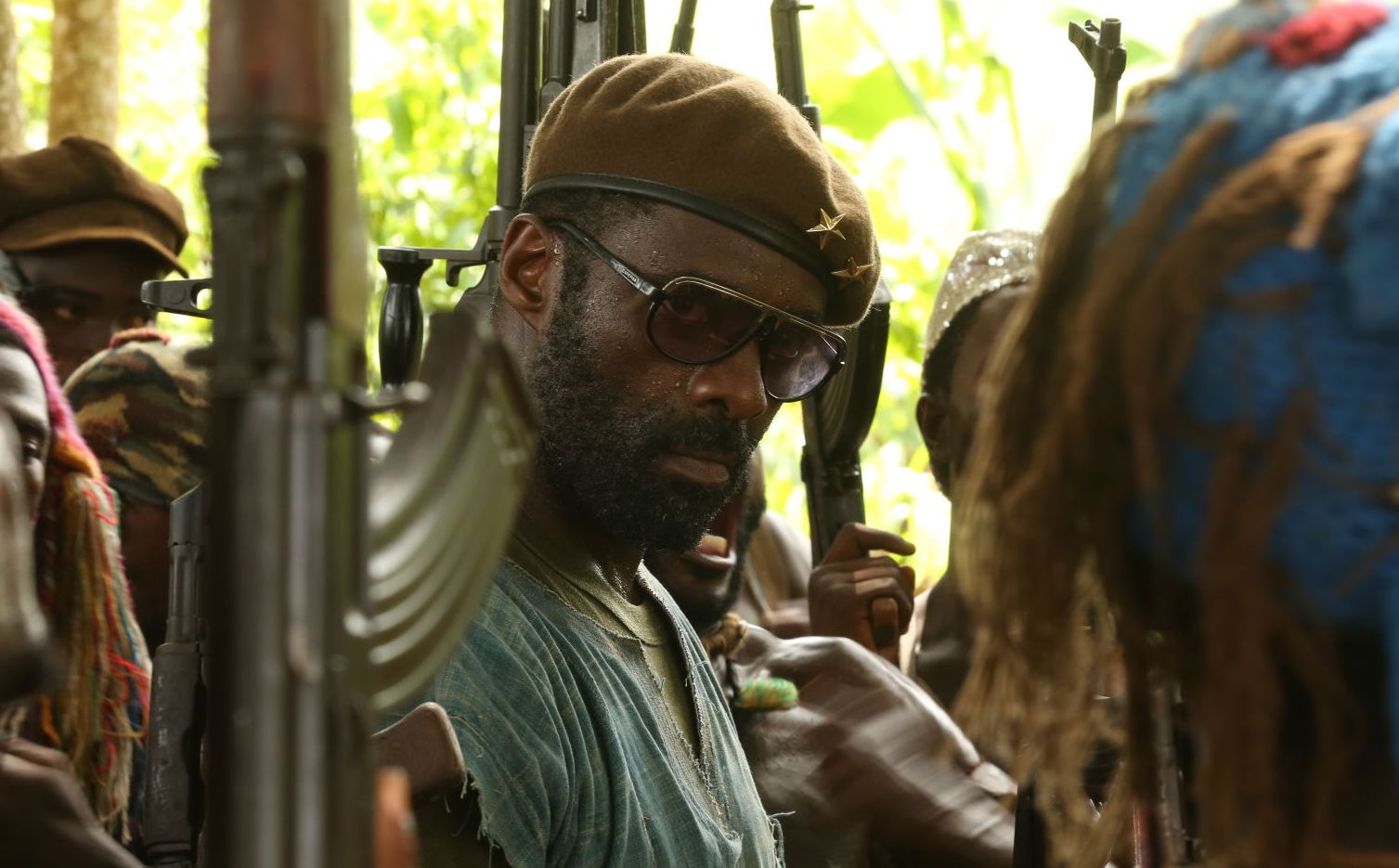
Going back to Elba there is an almost pantomime quality he elicits that would have better lent itself to satire. He oversees a camp that bares amusing resemblance to the old school boarding school system, with punishing yet amusing initiations and hilarious chants in his praise. There are times The Commandant resembled a riotous senior year student and less a war lord. We hardly see him with a weapon and the one time we see him take to major battle he goes with a talisman in hand on the back off his steadfast belief in juju. To be fair, it ends up a comprehensive and victorious charge. Probably the biggest problem with the prominence of Elba’s character is the partial side-lining of Agu. The Commandant takes a liking to Agu and takes him under his wing and galvanizes his pain and loss into a vengeful thirst for blood, but the dynamic between the two is never fully fleshed out and undeserving on the resolution it aspires to.
Despite the flaws on show, Fukunaga does score points for his handling of the camera and cinematography. This film was made for a meagre 6 million dollars and this is as low budget and indie as it gets. Fukunaga masks this low budget well by relying on his intelligence and the unlimited resources nature affords. He displays a Herzog-esque cosiness with the harsh bushy terrain drawing on the natural evergreen colour to enhance his visuals. He films a lot of the action with frantic intensity, playing the scenes of violence in a manner akin to a drug rush. There is a sequence of battle that plays out in an almost surreal state as Fukunaga employs a monochromatic colour pallet with weeds and bushes turning red and the sky fading bleakly to grey as Agu and his fellow soldiers satisfy their vehement lust for blood.
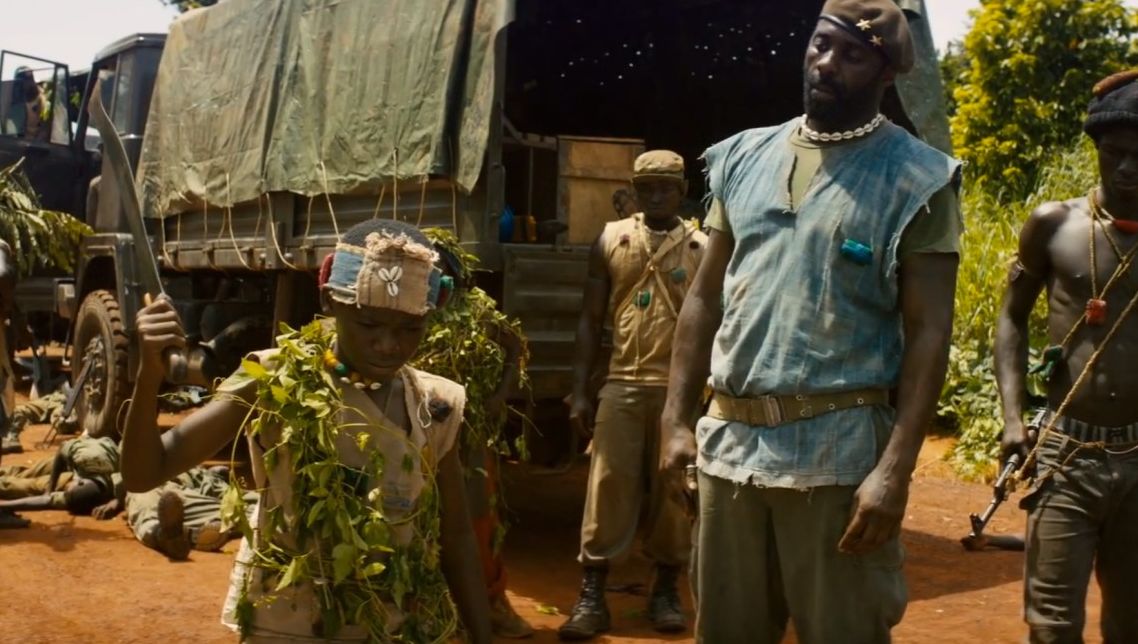
This is ultimately Agu’s story, though he spends a little too much time on the periphery. We get enough of him to hold onto through this harrowing journey, and his voice-overs and prayers to God remind us there still remains an innocence behind the Kalashnikov wielding child. Attah as Agu has his moment late on as he provokes moments of contemplation as we are made aware of the sole casualty of cycles of violence. It is a shame the film feel likes it hasn't earned the soul and resolution we find in young Agu.
